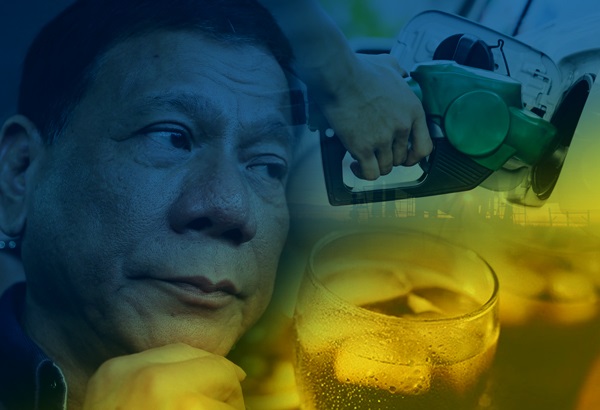Philippines: Bicameral committee finalizes proposed tax reform program
MANILA, Philippines — The bicameral conference committee has finally harmonized the Senate and the House of Representatives’ versions of the proposed Tax Reform for Acceleration and Inclusion Act, with senators having their way on one controversial provision: the coal tax hike.
With both chambers of Congress set to ratify the bill, President Rodrigo Duterte is scheduled to sign both TRAIN and the 2018 national budget on December 19, Budget Secretary Benjamin Diokno said in a text message.
According to the Senate Committee on Ways and Means, lawmakers agreed to adopt the Senate’s proposal to slap additional tax on coal despite several warnings that the measure could trigger a spike in power costs.
However, under the bicameral-approved version of TRAIN, the planned increase in duties imposed on coal has been reduced to P50 per metric ton in the first year of implementation, P100 in the second year, and P150 in the third and succeeding years.
The Senate earlier voted to hike the excise tax on coal to as much as P300 per metric ton in 2020 from P10 per metric ton, the rate in effect since the 1970s.
TRAIN is the first of four packages the Duterte administration is proposing to generate revenues for its massive infrastructure program.
Under the proposed law, personal income tax rates will be adjusted to shift the burden off lower-income segments toward the “ultra-rich.”
Projected revenues to be foregone from lower personal income tax will be offset by higher excise levies on petroleum and automobiles, among others.
Other measures
Meanwhile, the bicameral conference committee has also approved the exemption of first P250,000 annual taxable income for salary earners. They also raised the tax exemption for the 13th month pay and other bonuses to P90,000.
Small businesses with total annual sales of P3 million and below will be exempted from paying value-added tax. VAT exemptions were retained for raw food/agricultural products, health and education, senior citizens, persons with disabilities, and cooperatives, among others.
Other highlights of the consolidated bill include:
- A tax of P6 per liter for beverages using caloric and non-caloric sweeteners, and P12 per liter for beverages using high fructose corn syrup. Exempted are milk, 3-in-1 coffee, 100-percent natural fruit and vegetable juices and beverages that use coco sugar and stevia.
- By 2018, a tax of P2.50 per liter of diesel fuel, P7 per liter of regular and unleaded premium gasoline, and P1 per kilogram of liquefied petroleum gas.
- For automobiles, a tax of 4 percent for units with a net manufacturer’s price of up to P600,000; 10 percent for P600,000 to P1 million; 20 percent for P1 million to P4 million; and 50 percent for above P4 million.
- Reduced and simplified donor’s tax to a flat tax rate of 6 percent on net donations for gifts exceeding P250,000 regardless of relationship between donor and recipient.
- Prevailing documentary stamp tax rates on documents, instruments, loan agreements and papers such as bank checks will be doubled from P1.50 to P3.
- “Invasive” cosmetic procedures, surgeries, and body enhancements directed solely towards improving, altering, or enhancing the patient’s appearance will be levied with 5 percent excise tax.
- Doubled the excise tax rates of all non-metallic minerals and quarry resources, and all metallic minerals including copper, gold and chromite.
- Raised tobacco excise tax from current P30 to P32.50 by January to June 2018; P35 by July to December 2018-2019; P37.50 by 2020-2021; P40 by 2022-2023; and a 4 percent annual increase by 2023 onwards.
- Reduced and simplified estate tax to a flat tax rate of 6 percent based on the net value of the estate.
Source: http://www.philstar.com/business/2017/12/12/1767692/bicameral-committee-finalizes-proposed-tax-reform-program


 Thailand
Thailand




